From July 3 to 7, 2024, Tsinghua PBCSF’s Belt & Road Initiative Financial EMBA (BRI EMBA) Program visited Singapore. Among the lecturers were Kishore Mahbubani, a well-known diplomat and global scholar in Singapore, Cedomir Nestrovic, Professor of Asia-Pacific Geopolitics at ESSEC Advanced Business School in Singapore, and Huang Guobo, Chief Investment Officer of CNIC Corporation in China, who gave insightful lectures on global geopolitics and macroeconomic trends. The students also had a conversation with the business leaders of the Singapore Stock Exchange, and visited Lark (or Feishu, a ByteDance company for corporate collaboration and management platform) in Singapore Industrial Zone and Carro, a used car trading unicorn company in Southeast Asia, to gain an in-depth understanding of business practices and technological innovation in the development of globalization.

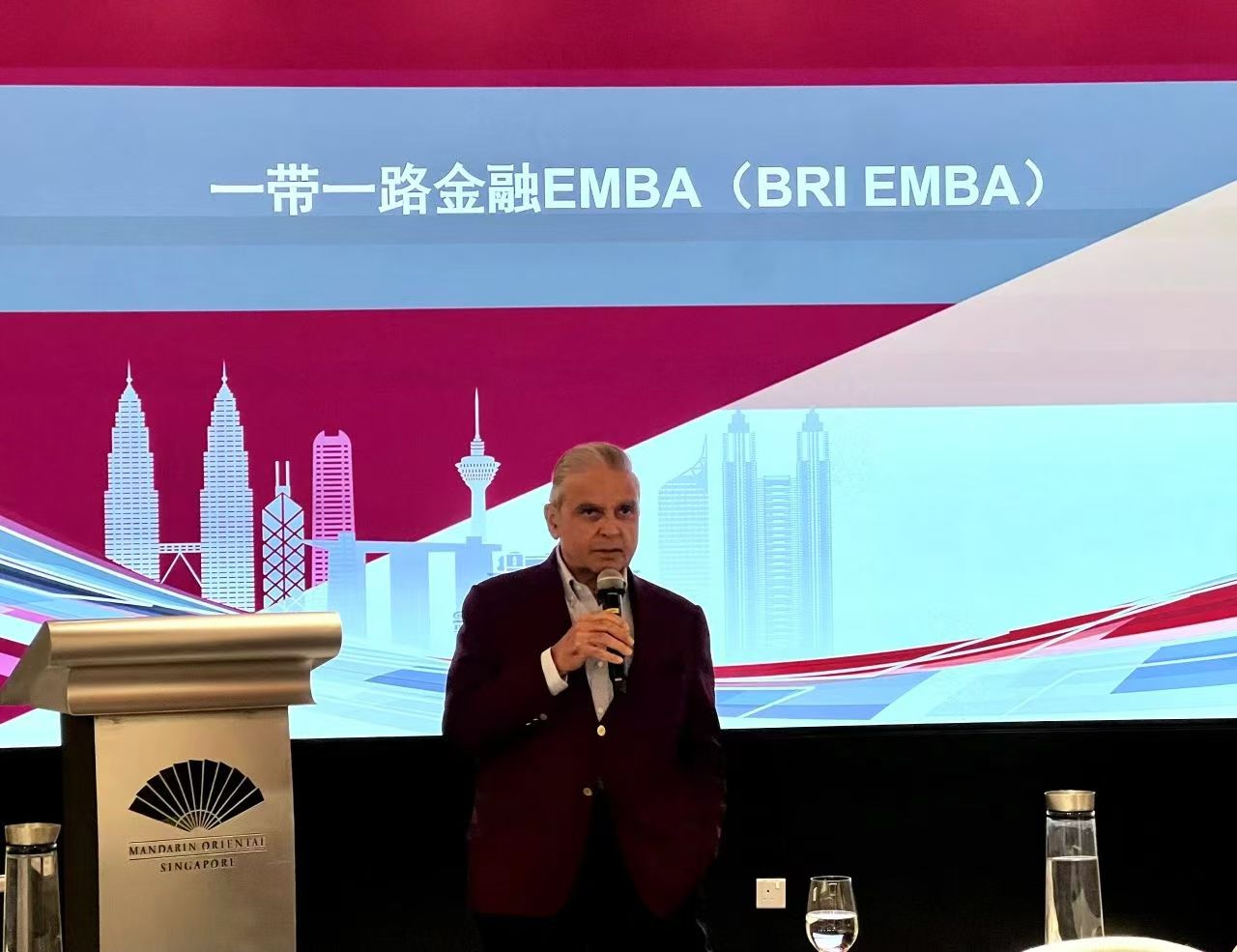
Kishore Mahbubani
Distinguished Research Fellow at the Institute of Asian Studies, National University of Singapore, Founding Dean of the Lee Kuan Yew School of Public Policy, National University of Singapore and former Ambassador of Singapore to the United Nations, Kishore Mahbubani is the author of “China's Choice: The Sino-US Game and Strategic Choice”, “The New Asian Hemisphere”, “The ASEAN Miracle”, “Has the West Failed?”, “Asia's 21st Century” and other works.
In his sharing, Kishore Mahbubani foresees that the global gaming between China and the United States will intensify, and believes that regardless United States of the election results, the policy of containing China may continue, but asserts that United States cannot succeed in containing China. China has learned the lessons from the collapse of the Soviet Union and the US containment strategy, and has instead strengthened its domestic, economic, and peripheral diplomatic policies, such as increasing its trade with ASEAN from $40 billion to nearly a trillion dollars. He stressed that China is different from United States in that it does not use competitive ideology against other major powers and shows its unique advantages.
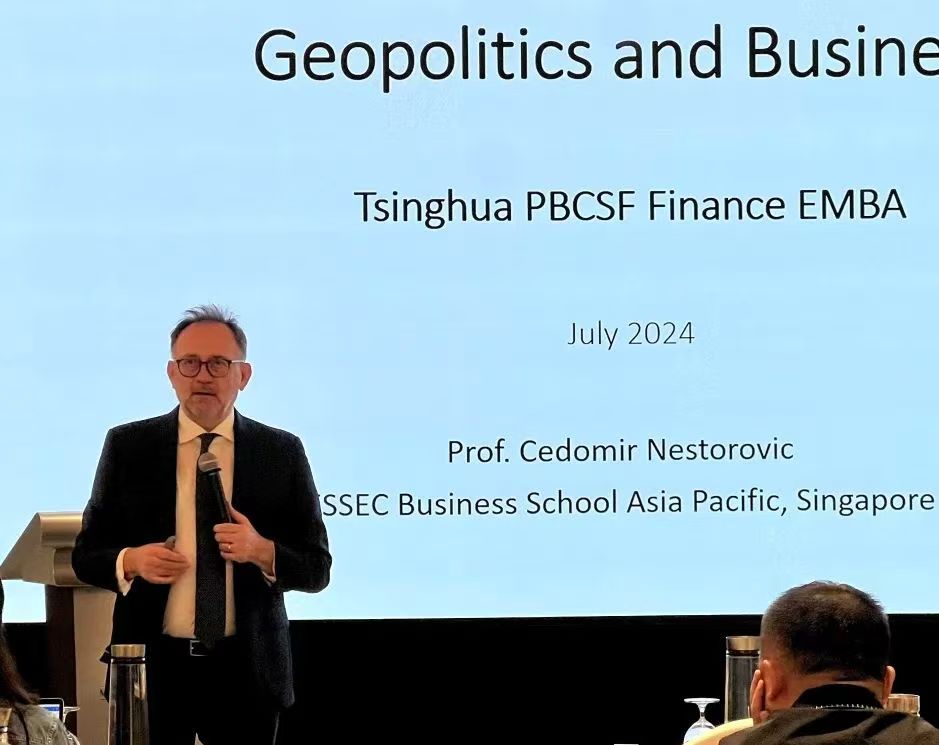
Cedomir Nestrovic
Professor of Asia-Pacific Geopolitics at ESSEC Business School, Singapore, and author of "Marketing in the Islamic Environment" and "Geopolitics and Business".
In his course, Nestrovich combined a large number of practical cases of enterprises hindered in their international development, revealed the intricate relationship between geopolitics and business, analyzed the crucial interdependence between enterprises and geopolitics, and applied the classical ESTEL analysis model to help enterprises develop overseas strategies. At the same time, as a long-term scholar of the Islamic market and business, Nesterovich shared with the students the opportunities of the booming global halal economy and the matters that need to be paid attention to in business operation based on the latest data and vivid cases in the Global Islamic Economic Situation Report.
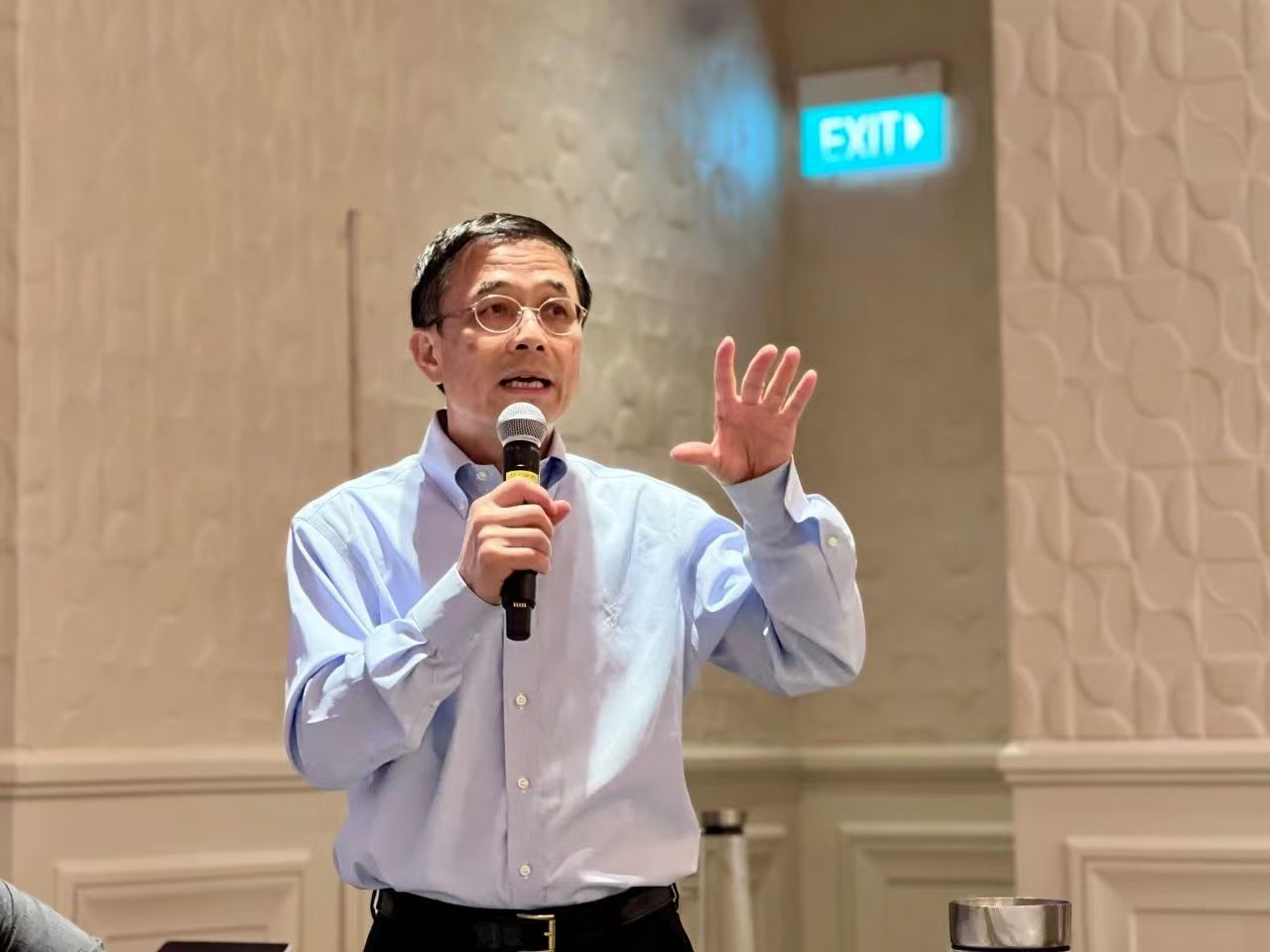
Huang Guobo
Chief Investment Officer of CNIC Corporation Ltd. Formerly the chief economist of the State Administration of Foreign Exchange.
In the course of "Macro Policy and Overseas Investment", Huang Guobo combined data analysis with the reconstruction of the global industrial chain under the Sino-US competition, explained the theory of exchange rate determination and businesses’ management of exchange rate risk. The new characteristics and trends of China's foreign direct investment (FDI) were introduced. He also shared the new trend of global asset allocation, and made an investment outlook based on cases and market conditions in various countries.

Themed Sharing: Understanding the Global Market
In addition to the courses, the management team of the Singapore Stock Exchange shared the basics of the Exchange. Singapore Stock Exchange is one of the most internationalized exchanges in the world, and more than 30% of the listed companies are overseas companies outside of Singapore. As of the end of April 2024, there were 623 listed companies on SGX, with a market capitalization of S$572 billion. The leaders then shared with the students the differences in listing conditions and procedures between the Main Board and the Catalist, the Stock Market Grant Scheme (GEMS) launched by the Monetary Authority of Singapore (MAS), and the Sustainable Finance Innovation Platform.
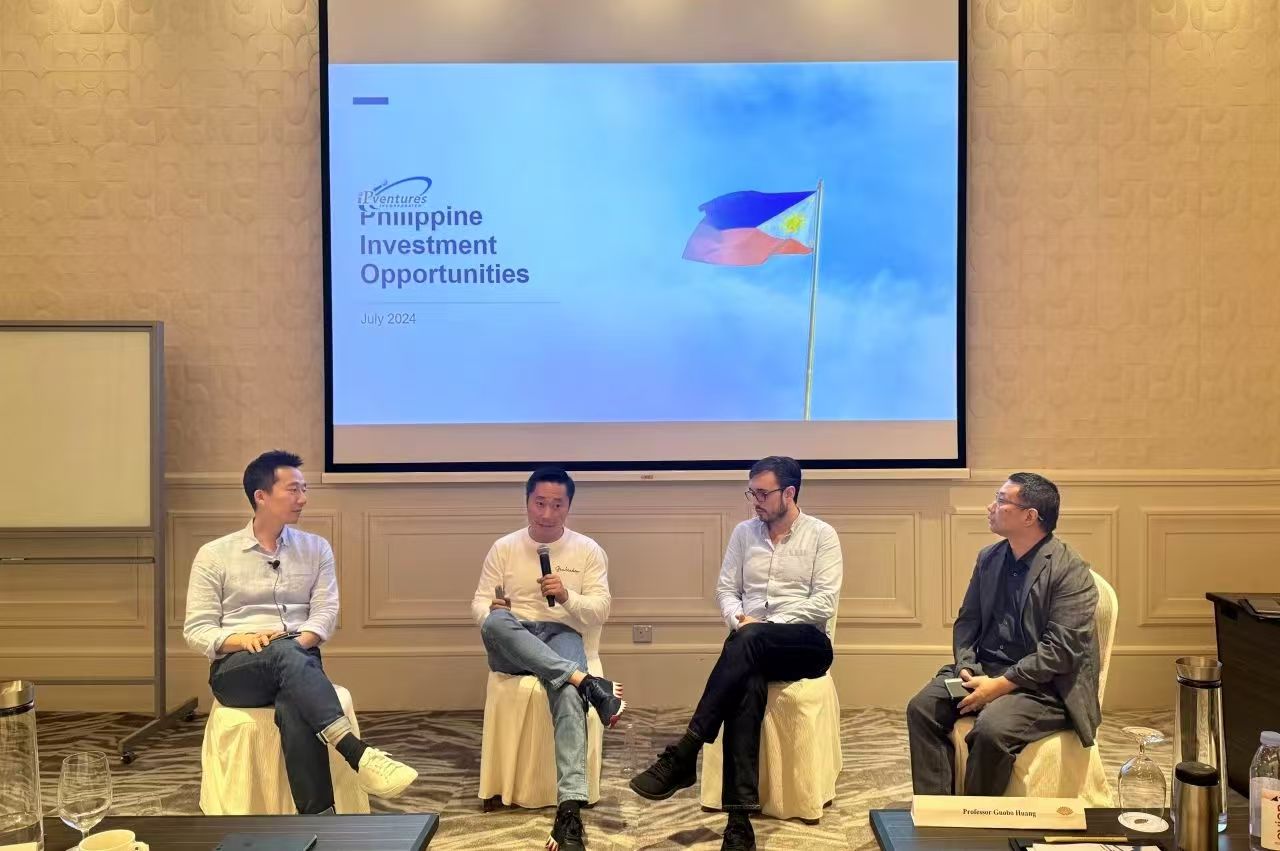
Students sharing session
During the internal peer sharing, Enrique Gonzalez, a student of Cohort IV of BRI EMBA and CEO of IP Ventures shared as a Philippino investor the basic economic data of the Philippines with the rest of the class, and talked about the general situation of the infrastructure industry, mining, transportation, energy, information technology, and digital industry in the Philippines via corresponding cases of companies he invested in.
Wu Yanan, a student of BRI EMBA Cohort III and CEO of Surfin Meta Digital Technology, shared his practical experiences in exploring the African Fintech market, the opportunities of the young population structure in Africa, and the challenges of the complex political and economic environment. Fernando Scodro, a student of Cohort V of BRI EMBA and Managing Partner of Mukua Investments (Brazil), shared the foreign trade needs and investment opportunities in the Brazilian market. Sean Lin Huang, a student of BRI EMBA Cohort II, moderated the sharing session.

Company visits to the forefront of business
The BRI EMBA program visited Lark or Feishu, a ByteDance (China) company in the Singapore Industrial Zone to discuss the opportunities and challenges in global deployment, and to gain an in-depth understanding of ByteDance's overseas practices of different businesses in Southeast Asia, as well as cross-border solutions that can be exported based on Feishu's capabilities and overseas e-commerce plan.
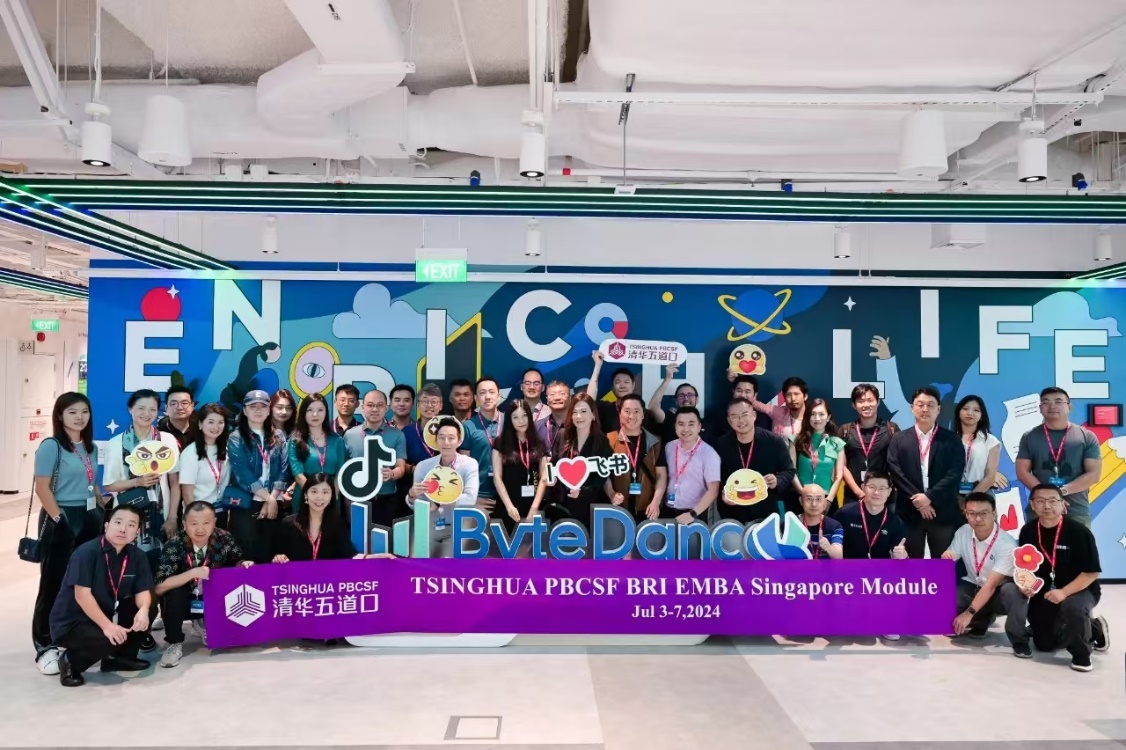
Visiting Feishu (Lark)
The Program team also visited Carro, a Southeast Asian used car trading unicorn founded by Aaron Tan, an alumnus of Cohort II of BRI EMBA. Aaron shared with the students his entrepreneurial journey and the strategic choices at several important turning points, especially from the C2C model to the B2B and B2B2C hybrid model in 2015, which enabled the company to usher in rapid development.
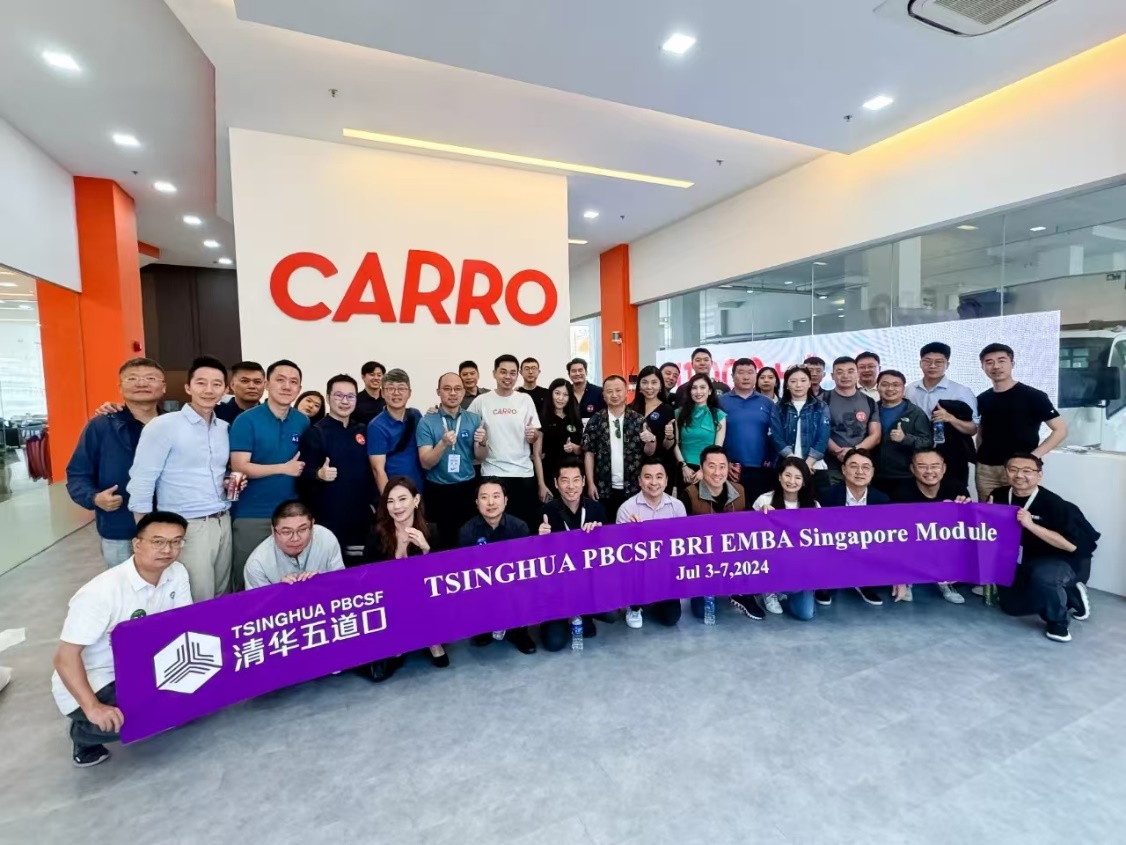
Visiting Carro